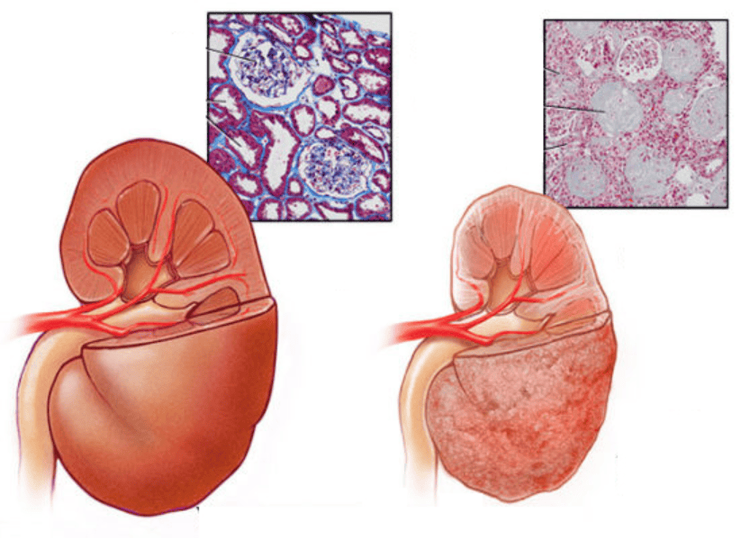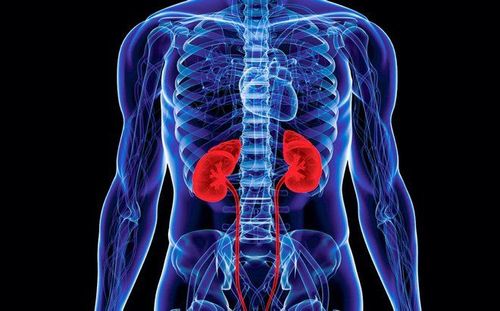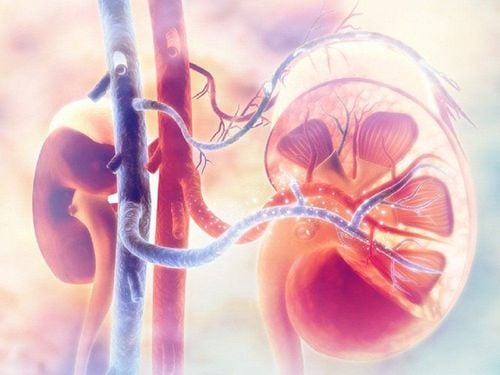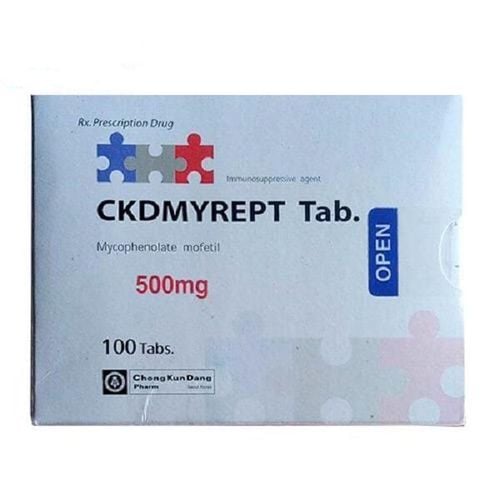This is an automatically translated article.
Peritoneal dialysis is one of the most effective and convenient end-stage renal failure treatments. However, not all patients with end-stage renal failure are suitable for peritoneal dialysis.
1. Cases of chronic kidney failure with indications for peritoneal dialysis
Peritoneal dialysis is a treatment for kidney failure indicated when patients with end-stage renal failure. The glomerular filtration rate of patients at this stage is lower than 15ml/min/1.73m2 of skin and kidney has almost completely lost function. The peritoneal dialysis technique has two main forms:
Continuous outpatient peritoneal dialysis (CAPD): The patient performs manual dialysis 3 to 5 times a day, in the patient's peritoneal cavity there is always presence of filtrate. Automatic peritoneal dialysis (ADP): The patient performs peritoneal dialysis by machine. The filtrate change takes place at night and is done automatically by the machine. Peritoneal dialysis can be widely applied to a wide range of patients, especially those unable to undergo hemodialysis due to comorbidities such as congestive heart failure, extensive vascular disease, ischemia or patients have a high risk of infection when they regularly enter the blood; the patient is a child or the patient is waiting for a kidney transplant.

Lọc màng bụng được sử dụng cho những bệnh nhân suy thận, đặc biệt ở giai đoạn cuối
2. Contraindicated in peritoneal dialysis in which cases?
Peritoneal dialysis is an effective treatment, offers many conveniences and can be used for most patients. However, because the mechanism of peritoneal dialysis is to use the patient's own peritoneal membrane as a filter, sterile filtrate will be introduced into the abdominal cavity regularly through the catheter. Dissolved wastes, metabolites, electrolytes, excess water from the blood due to higher concentration and pressure will pass through the peritoneal cavity and through the dialysis fluid cavity, after a period of soaking the dialysis fluid in the abdomen, the filtrate Removed to help remove harmful wastes from the body. Because the peritoneum and fluid exchange play a key role in peritoneal dialysis, there will be some cases where patients with end-stage renal failure are not suitable for this technique.
2.1 Cases of absolute contraindications to peritoneal dialysis
Patients whose peritoneal function no longer has filtration or extensive peritoneal adhesions that impede the outflow of dialysis fluid will not be able to undergo peritoneal dialysis. In addition, peritoneal dialysis is also not indicated when the patient is unsupported, especially when the patient has physical or mental problems, and is unable to take care of himself.
Another contraindication is when the patient has defects (eg hernia,...) that increase the risk of infection during peritoneal dialysis but cannot be definitively treated.
2.2 Relative contraindications to peritoneal dialysis

Một trong những trường hợp chống chỉ định lọc màng bụng là béo phì
The use of peritoneal dialysis will be considered with extreme caution in the following cases::
Patients with inflammation, intestinal diseases or frequent diverticulitis. Patients with limited peritoneal volume (in cases of hepatomegaly, splenomegaly, polycystic kidney, ..) cannot contain enough filtrate needed for dialysis. Patient has peritoneal leak. Patients with abdominal wall infection or localized peritonitis. The patient has just undergone abdominal surgery. Patients who are obese or severely malnourished. When peritoneal dialysis is not possible, the patient will be considered for other kidney replacement treatments such as kidney transplant or hemodialysis. Patients who are indicated for peritoneal dialysis will have surgery to place a specialized catheter into the peritoneal cavity, the catheter is a catheter that helps to bring the filtrate into the abdominal cavity and drain the fluid out after the dialysis is completed. During peritoneal dialysis, patients need to follow proper technique and ensure hygiene to limit possible complications, especially peritoneal infection.
To register for examination and treatment at Vinmec International General Hospital, you can contact Vinmec Health System nationwide, or register online HERE.
MORE:
Complications of peritoneal dialysis in people with end-stage chronic renal failure













